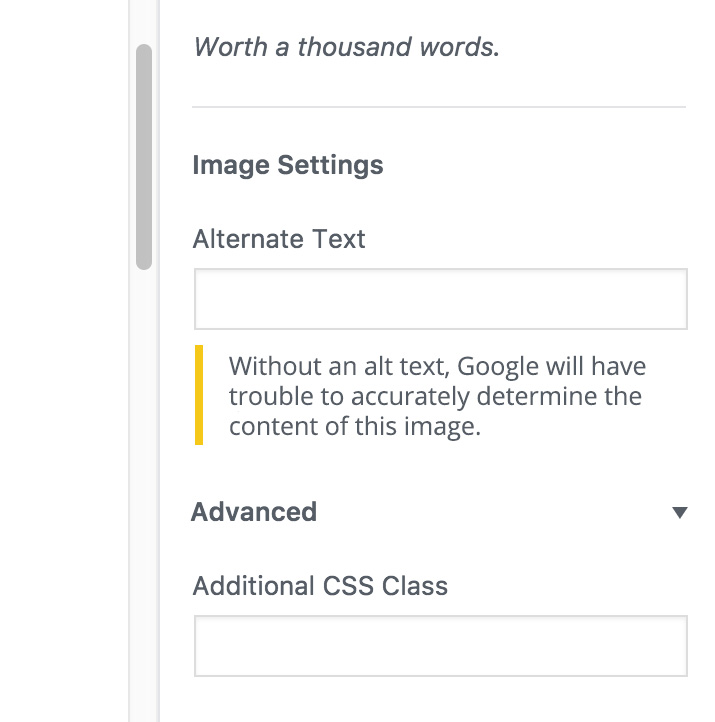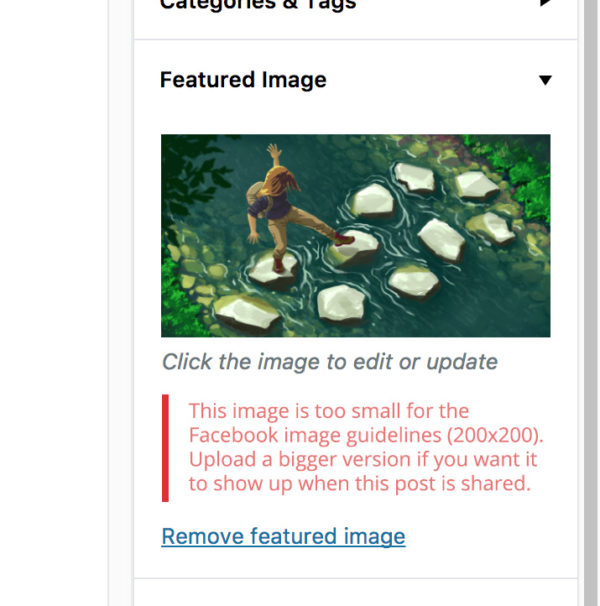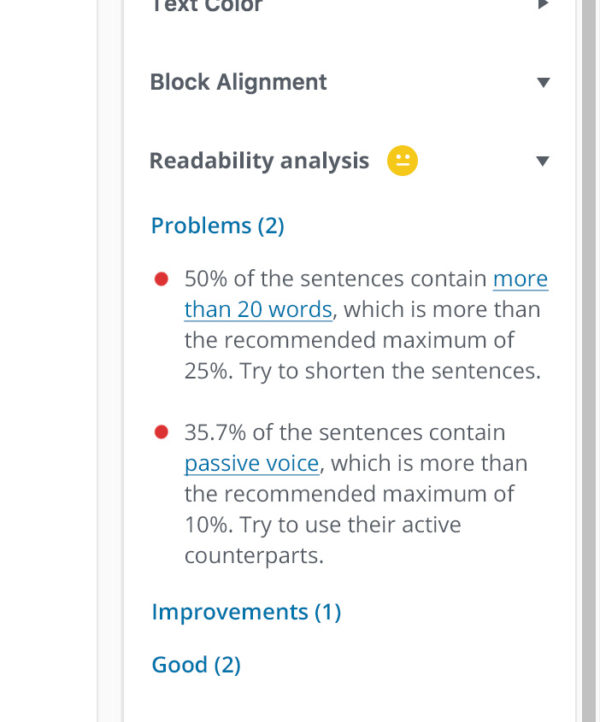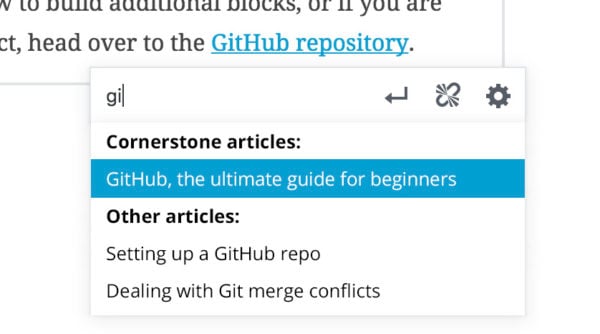Gutenberg is the new editing experience coming to WordPress. We’ve talked about it before. While we have some hesitations, we do see Gutenberg as a major step forward and are thinking about how we will integrate Yoast SEO into Gutenberg. In this post, we’ll share some of the ideas we’re excited about.
Gutenberg introduces new concepts, like blocks, and new places where we could potentially integrate. The premise behind our integration is that we need to give you feedback as soon as we can, in the right spot. Feedback is most helpful when you can actually do something with it immediately.
Inline is where it’s happening
We started by breaking down all our features, and seeing where we could integrate them into Gutenberg. We don’t think holding on to a single, massive box below the editor will best serve our customers. We’d much rather integrate right where the action happens, and Gutenberg offers us that chance. Let’s take a closer look at what we mean.
For instance, if you don’t fill out an alt text for an image you included, we don’t want to show that bullet point way down below in our metabox, in a long list of possible improvements. No, we want to show it to you right below the field where you can input the alt text.

Same for the featured image. Say you upload an image that is too small for Facebook to accept – you don’t want to have to find out about that when the whole post is finished, and you happen to wander into our social media preview editor. No, we tell you right then and there.

Connecting cause and effect
By working inline as much as we can, we’ll create a tighter connection between what you do and what effect that has on SEO. You’ll get actionable feedback in context. You don’t have to scroll down to a meta box to see the advice and scroll up again to the place where you should implement it. If we give feedback per block, you will get a better understanding of all the factors that influence SEO. And you’ll be able to anticipate them in advance once you’ve been working this way for a while.
Here’s another example: our primary category selection, of course, will be right there in the categories meta box.

And another: the readability analysis, at the block level – just another section in the paragraph block settings, naturally.

The concept of blocks, in general, will allow us to give much more fine-grained feedback. For instance, you won’t have to look for the best place to add a link; we can scan all the blocks for you and let you know exactly which one is best for a certain link. Link suggestions don’t even have to live in a separate meta box. We can just insert them in the inline suggestions that the link UI offers.

But what if we dream a little bigger?
Some people are working on bringing collaboration to Gutenberg. If it pans out, you won’t need Google Docs or something else to draft articles and leave editorial feedback; you can do it all from within WordPress. Of course, an essential part of a collaborative workflow is a commenting system. But we’d like to think that not all comments have to come from humans, per se.
Something we’ve been exploring is adding our SEO and readability feedback as comments to text. That would put our biggest feature inline as well, right where you need it. You can immediately identify problem areas, respond to feedback with your own comments, or dismiss the ones you don’t want to fix. It becomes an interactive and fun process. We won’t have to use sweeping statements like “50% of your sentences are too long”, no, we can break it down for you block per block.

We know you may not always want instant feedback on every word you type, so you could filter out the comments that Yoast SEO generates. This way, you can keep the writing and editing processes separate.
Working off of that idea, we might even build a full SEO mode into Gutenberg. What it will do exactly is something we are still thinking about, but it could take the shape of a site-wide wizard that guides you through all the relevant SEO optimization steps in an actionable and customizable way. More on that soon.
Yoast SEO + Gutenberg = ?
Gutenberg offers lots of opportunities to take our plugins to the next level. The great thing is: all WordPress plugin developers will be able to do that too. It’s a brave new frontier for all of us, and we’re very much looking forward to it!
What sort of features would you love to see us make for Gutenberg, or for an SEO mode in general? Let us know in the comments.
The post Gutenberg: Concepts for integrating Yoast SEO appeared first on Yoast.
No comments:
Post a Comment